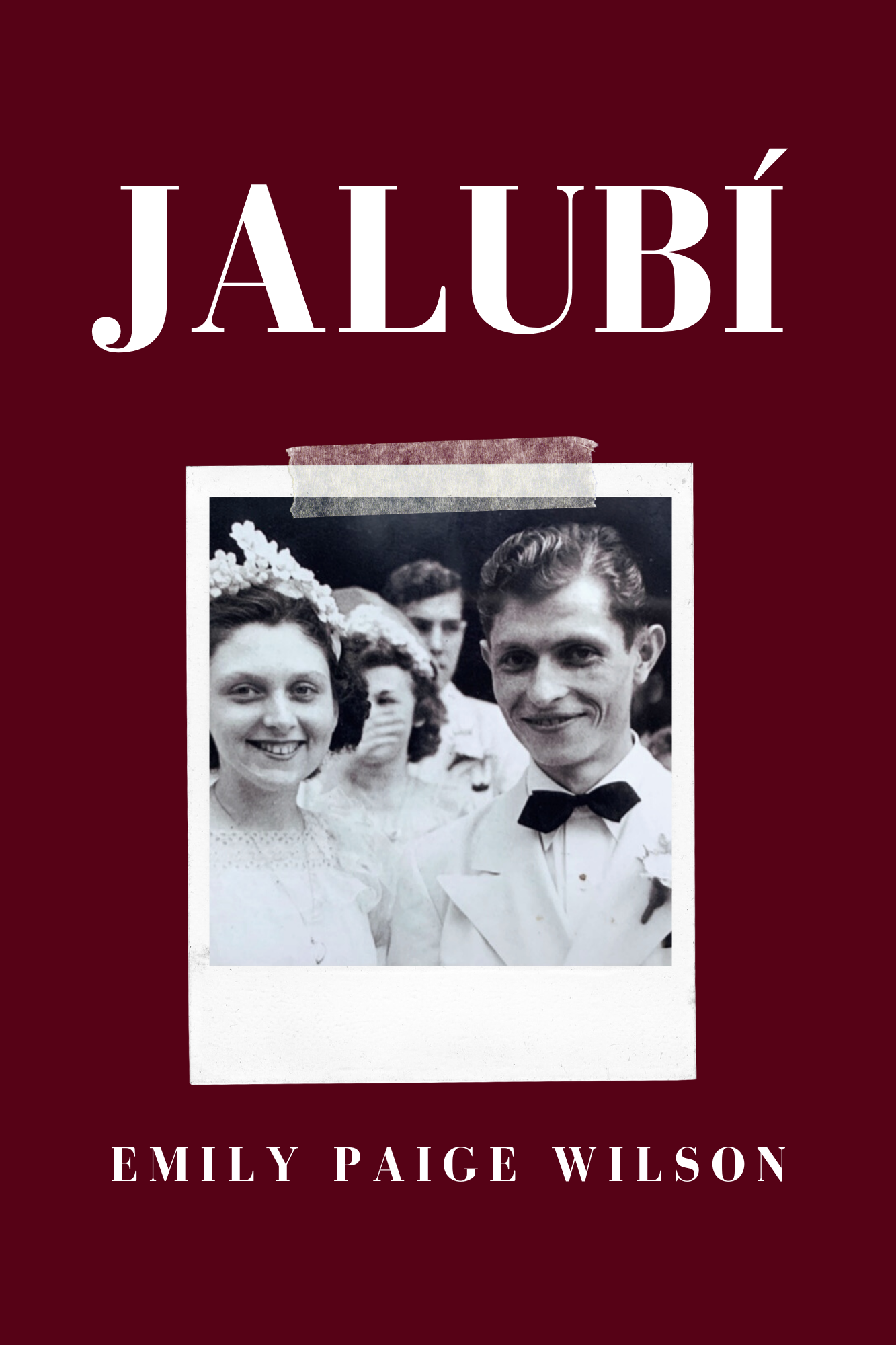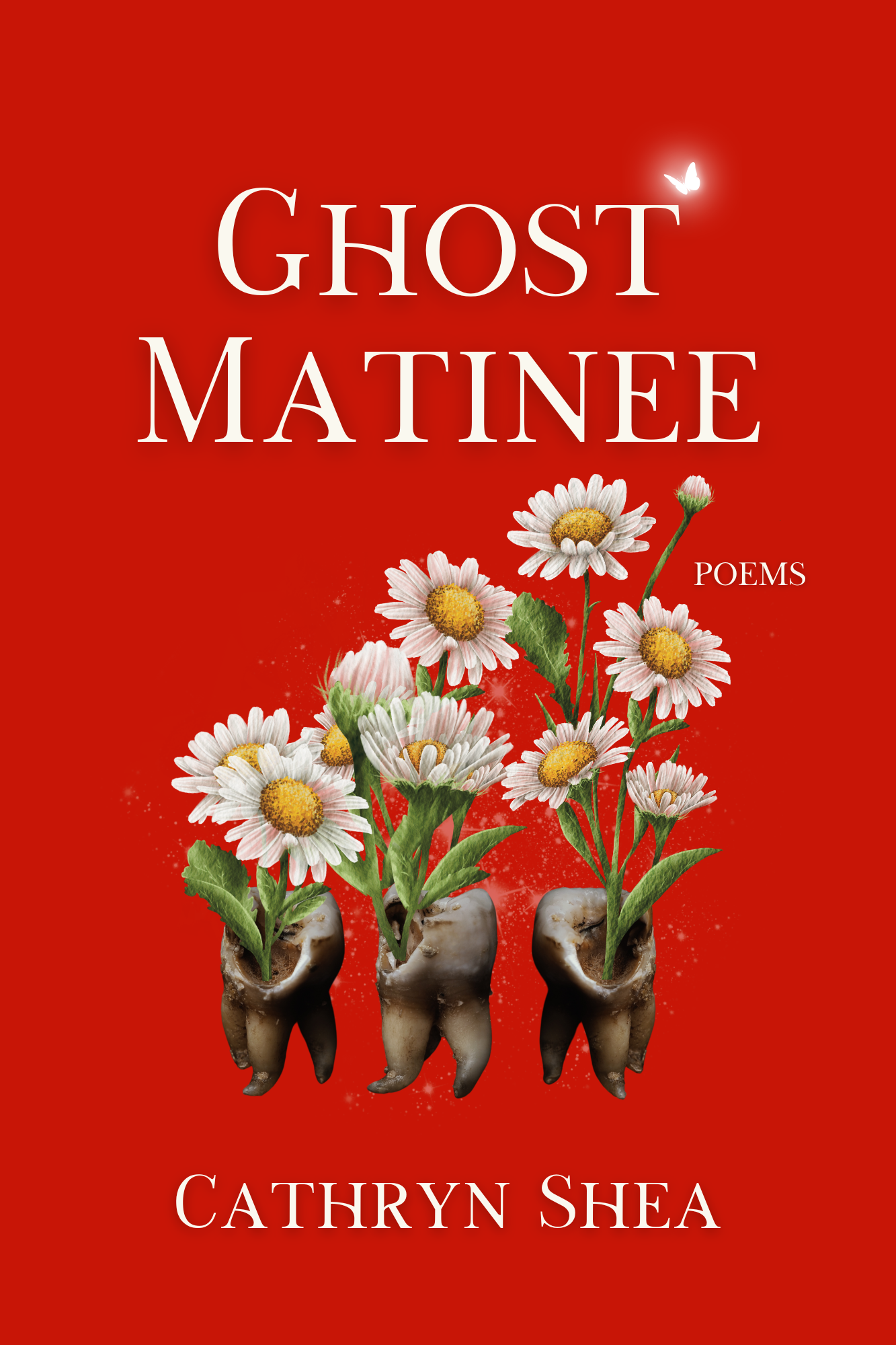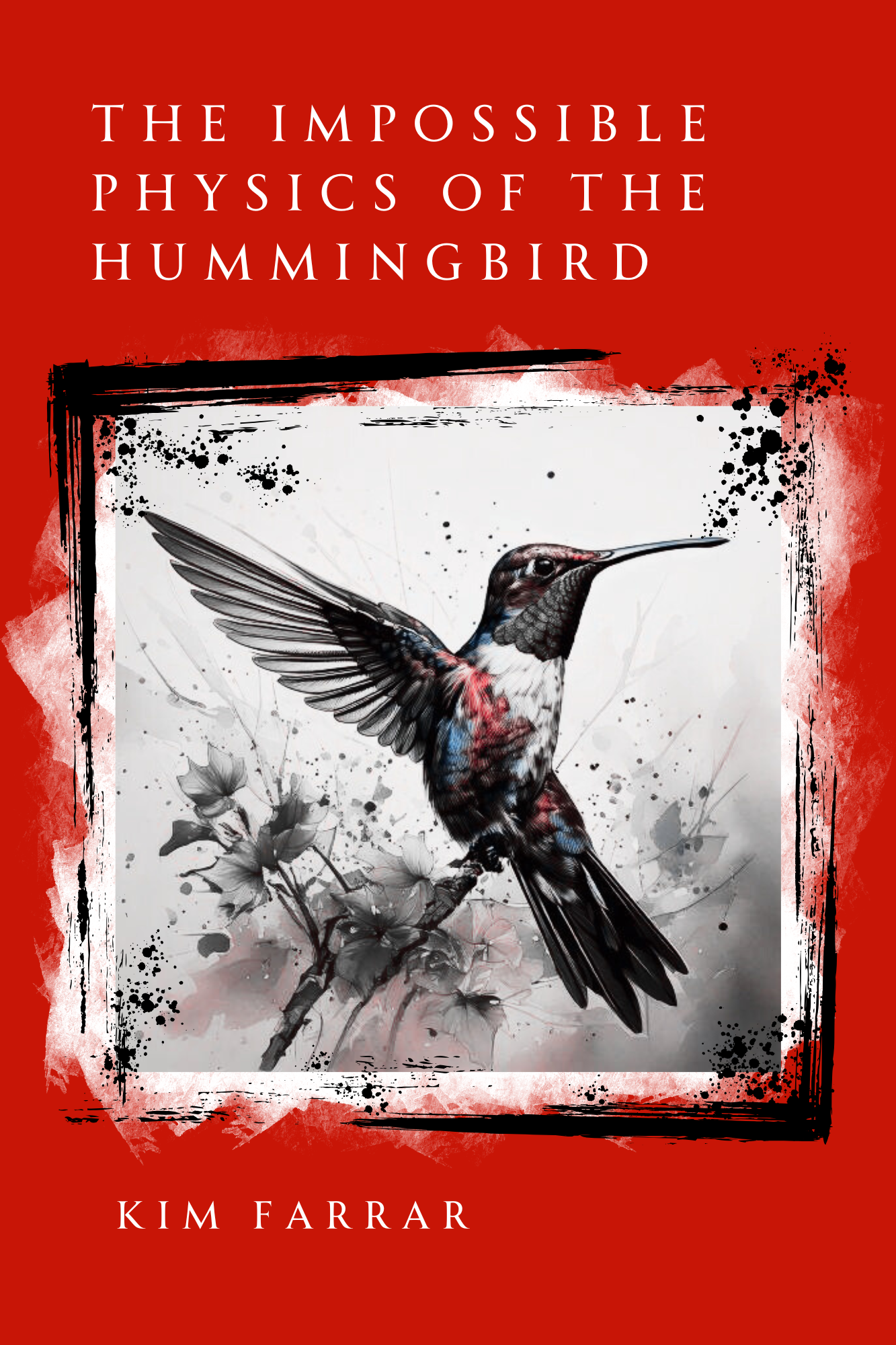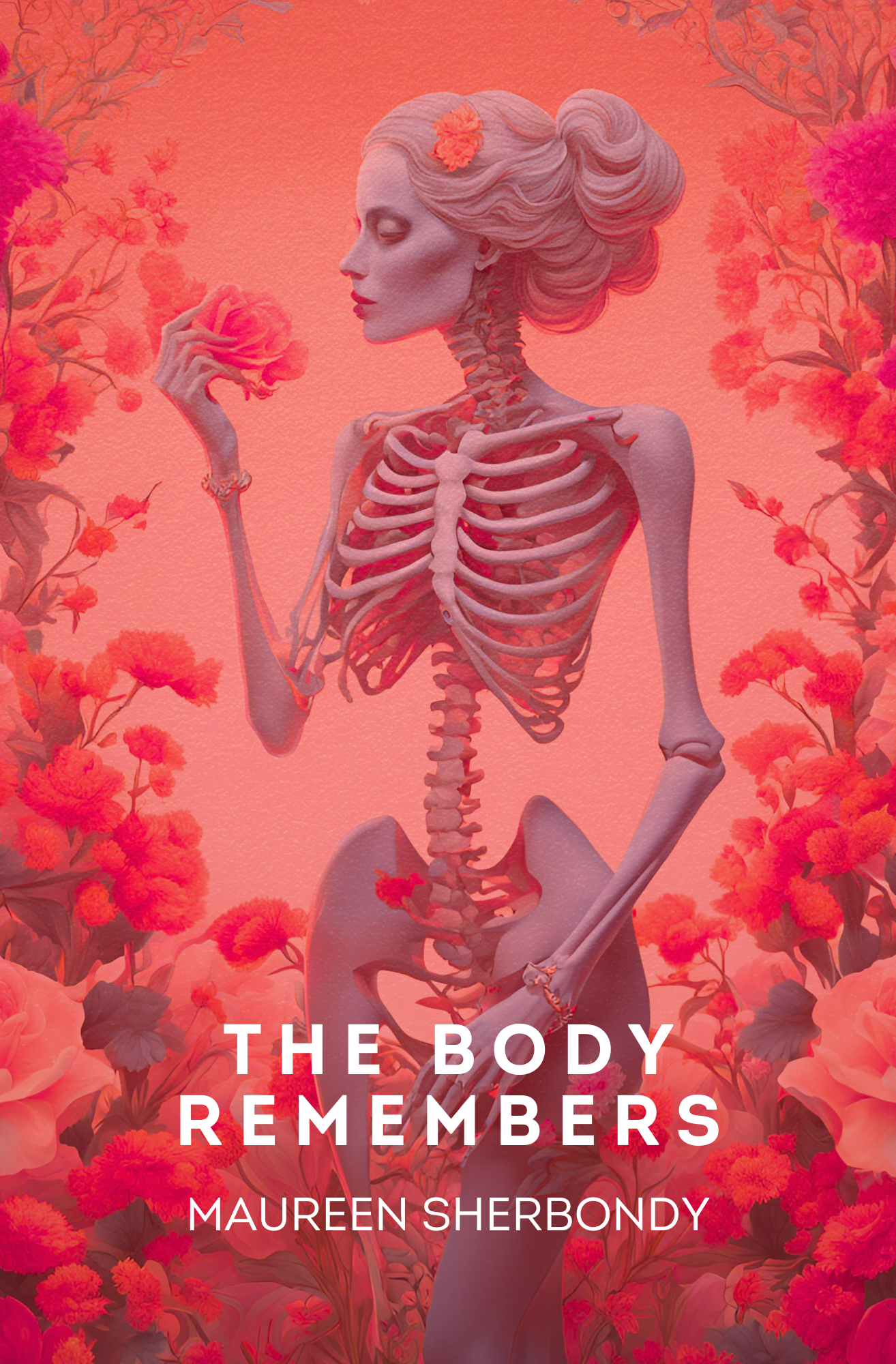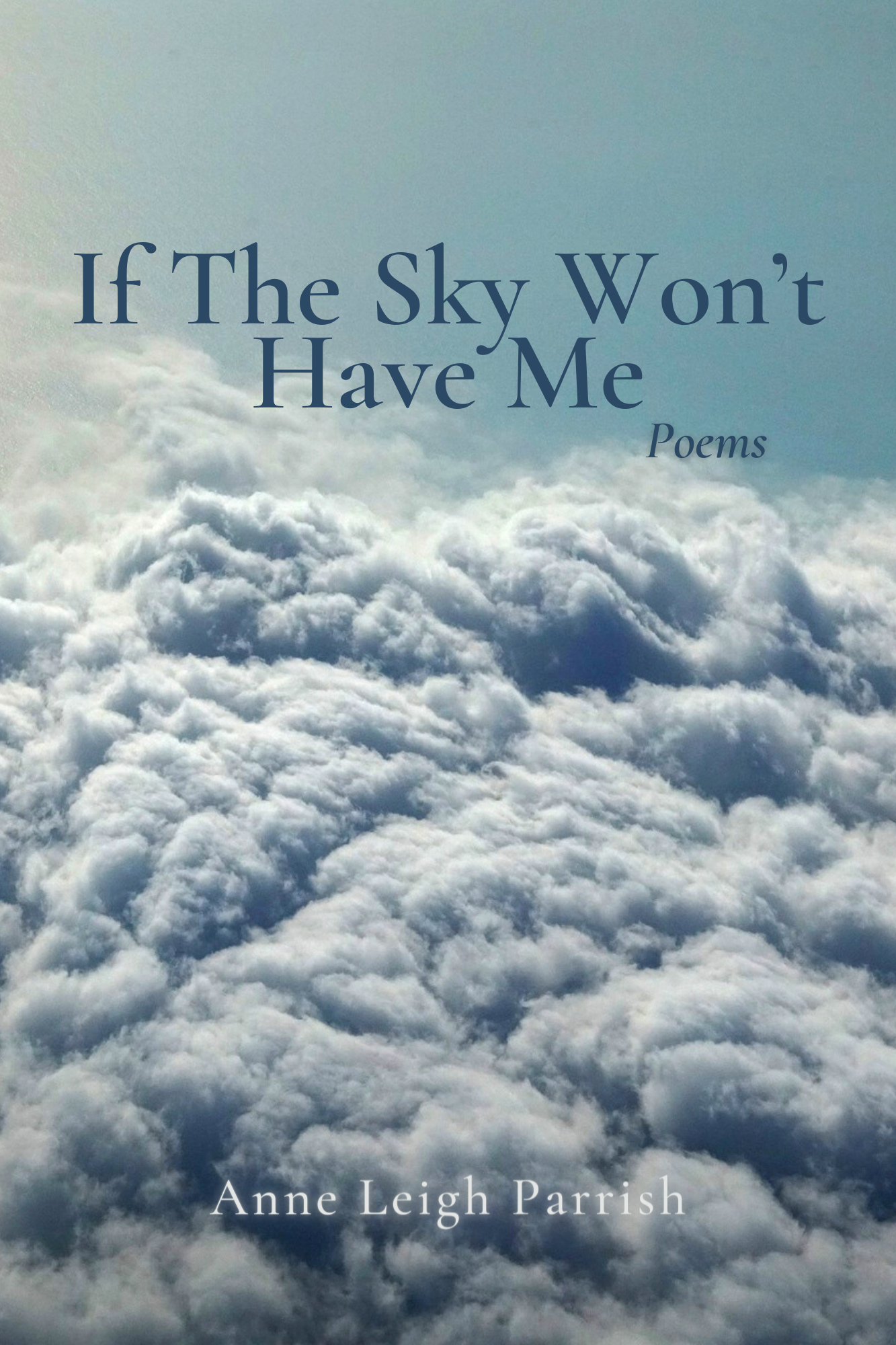JALUBÍ
In what ways does lineage resemble language, and are there aspects of both which will always feel untranslatable? With Prague as a backdrop, JALUBÍ explores this question as it attempts to balance on the fraught fulcrum point of what in the speaker’s family history has been accurately preserved and what has been turned into myth by way of intentional and accidental misrepresentations. Set in the shadow of witches, dragons, and a great-grandmother’s ghost, this collection suggests history itself is a haunting.
Like a persistent spirit, history refuses to cast itself in the sepia-toned filter of nostalgia: it’s instead the gold leaf which gilds theaters in Prague; the glinting burgundy of the city’s garnets fashioned into heirloom earrings; the gray of castles and cathedrals; canola fields fawn and flaxen in a small farming village near the Slovakian border. Amidst the colors and customs of Prague, the speaker shares the struggle of trying to understand and be understood across languages. Translation in these poems is both play and performance, invitation and isolation.
Framed in sections which mark various arrivals and departures, the collection posits whether a person can ever truly inhabit a place with any degree of fixedness or whether one’s identity must always remain in flux. Through these arrivals and departures, JALUBÍ chronicles the search for a family’s small farming village of origin and ultimately becomes a search for the self. As the speaker writes in the collection’s closing lines, “Being one person in this lineage is no more/than being one letter of a language:/written yet unaware of words.”
In what ways does lineage resemble language, and are there aspects of both which will always feel untranslatable? With Prague as a backdrop, JALUBÍ explores this question as it attempts to balance on the fraught fulcrum point of what in the speaker’s family history has been accurately preserved and what has been turned into myth by way of intentional and accidental misrepresentations. Set in the shadow of witches, dragons, and a great-grandmother’s ghost, this collection suggests history itself is a haunting.
Like a persistent spirit, history refuses to cast itself in the sepia-toned filter of nostalgia: it’s instead the gold leaf which gilds theaters in Prague; the glinting burgundy of the city’s garnets fashioned into heirloom earrings; the gray of castles and cathedrals; canola fields fawn and flaxen in a small farming village near the Slovakian border. Amidst the colors and customs of Prague, the speaker shares the struggle of trying to understand and be understood across languages. Translation in these poems is both play and performance, invitation and isolation.
Framed in sections which mark various arrivals and departures, the collection posits whether a person can ever truly inhabit a place with any degree of fixedness or whether one’s identity must always remain in flux. Through these arrivals and departures, JALUBÍ chronicles the search for a family’s small farming village of origin and ultimately becomes a search for the self. As the speaker writes in the collection’s closing lines, “Being one person in this lineage is no more/than being one letter of a language:/written yet unaware of words.”
In what ways does lineage resemble language, and are there aspects of both which will always feel untranslatable? With Prague as a backdrop, JALUBÍ explores this question as it attempts to balance on the fraught fulcrum point of what in the speaker’s family history has been accurately preserved and what has been turned into myth by way of intentional and accidental misrepresentations. Set in the shadow of witches, dragons, and a great-grandmother’s ghost, this collection suggests history itself is a haunting.
Like a persistent spirit, history refuses to cast itself in the sepia-toned filter of nostalgia: it’s instead the gold leaf which gilds theaters in Prague; the glinting burgundy of the city’s garnets fashioned into heirloom earrings; the gray of castles and cathedrals; canola fields fawn and flaxen in a small farming village near the Slovakian border. Amidst the colors and customs of Prague, the speaker shares the struggle of trying to understand and be understood across languages. Translation in these poems is both play and performance, invitation and isolation.
Framed in sections which mark various arrivals and departures, the collection posits whether a person can ever truly inhabit a place with any degree of fixedness or whether one’s identity must always remain in flux. Through these arrivals and departures, JALUBÍ chronicles the search for a family’s small farming village of origin and ultimately becomes a search for the self. As the speaker writes in the collection’s closing lines, “Being one person in this lineage is no more/than being one letter of a language:/written yet unaware of words.”
Praise for JALUBI
In this book a keen ear for sound and a powerful love of language combine to create intelligent, lyrical poems that live vibrantly in the borders between nationalities and relationships where understanding truly happens. The result is a lively, rich and deeply felt debut of arrivals and departures that honor Wilson’s family and heritage, as well as language itself. I am duly impressed.
—Mark Cox, Author of Readiness and Sorrow Bread, New and Selected Poems: 1984-2015
What is translation? Wilson would answer: alchemy, a snare, to have and halve, or “the space the rain takes as it falls.” Here, language is scrutinized against a blue light. Every facet is up for examination in Jalubí—linguistics, sound, ancestry—and the turning and layering is part method, part spell. This book is a vessel—Wilson, a force of wind. These poems will put a river in your mouth.
—Leah Poole Osowski, Author of Hover Over Her and Exceeds Us
About EMILY PAIGE WILSON
Emily Paige Wilson is the author of Jalubí (Unsolicited Press, 2022) and two chapbooks: Hypochondria, Least Powerful of the Greek Gods (Glass Poetry Press, 2020) and I'll Build Us a Home (Finishing Line Press, 2018). Her work has been nominated for Best New Poets, Best of the Net, and the Pushcart Prize.
-
Genre: Poetry
ISBN: 978-1-956692-15-0
Publication Date: May 24, 2022

